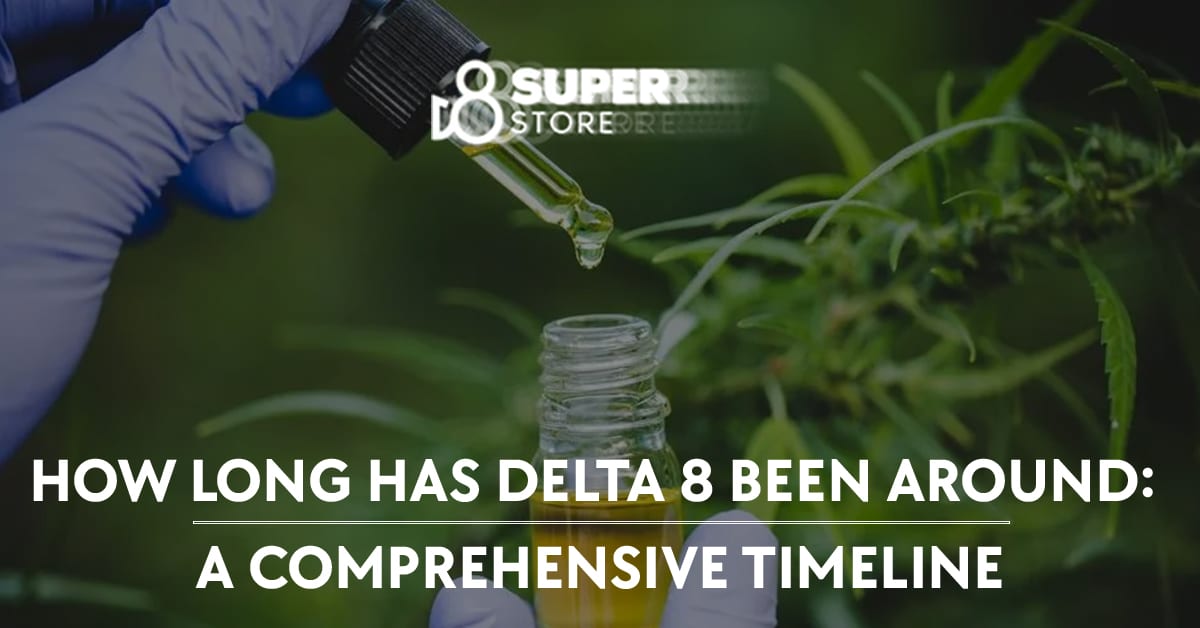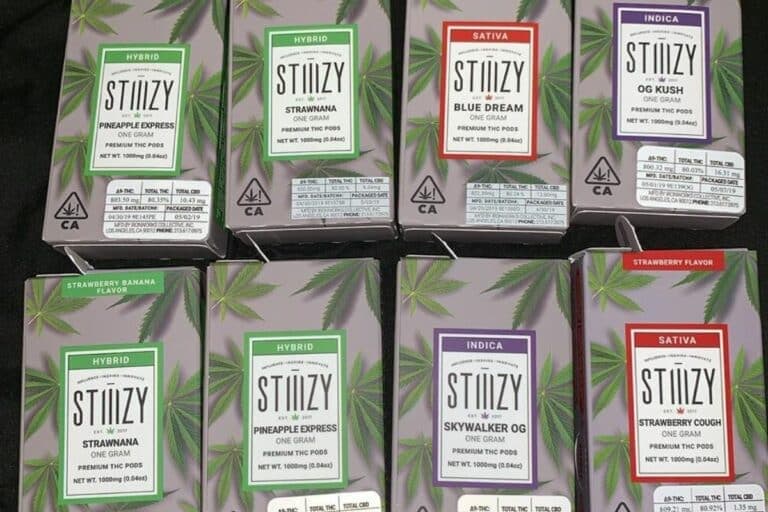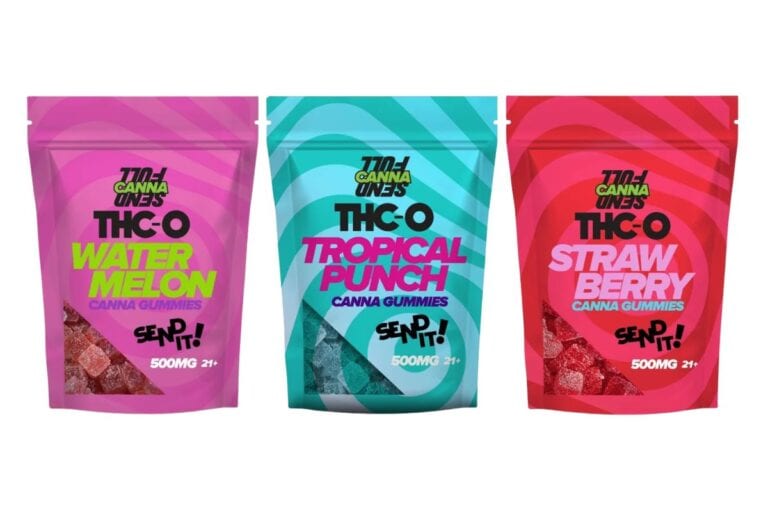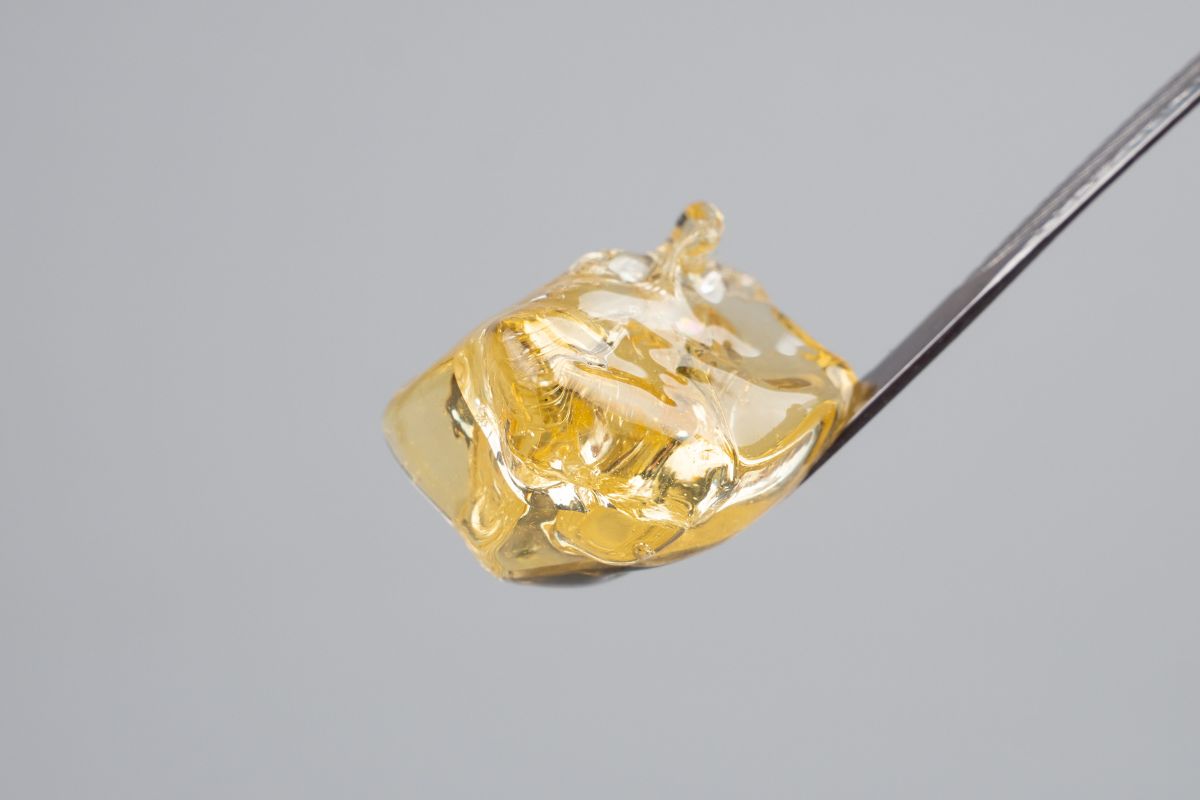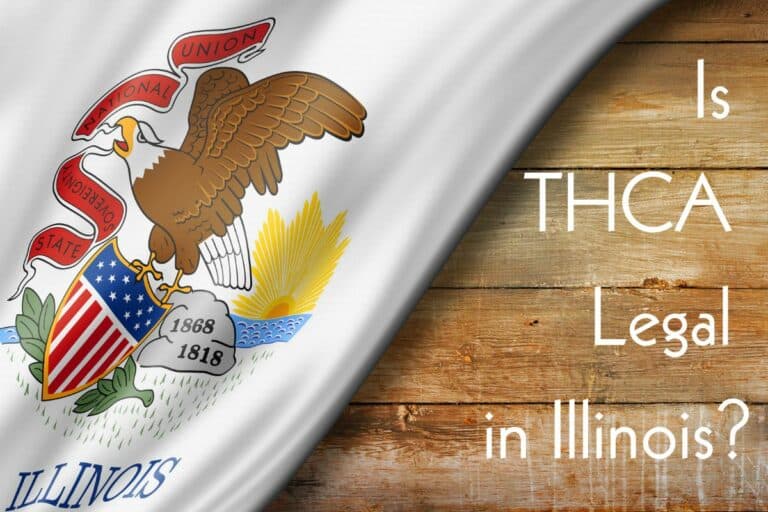How Long Has Delta 8 Been Around: A Comprehensive Timeline
Delta 8 THC has everyone who adores the green scene buzzing, landing perfectly in the happy medium of CBD’s laid-back calm and Delta 9 THC’s delightful buzz. It’s not exactly the newest kid on the block, but thanks to some clever extraction tricks and a spike in interest for the cannabis plant’s lesser-known treasures, it’s now stealing the spotlight.
Delta 8 THC is a naturally occurring compound derived from the cannabis plant, and it shares similarities with its more famous cousin, Delta 9 THC. It has a slightly altered chemical structure, which allows it to produce milder effects compared to Delta 9 THC, providing users with a more balanced experience. As the interest in Delta 8 THC grows, it becomes increasingly important to understand its history, characteristics, and potential impacts on users and the cannabis industry as a whole.
Key Takeaways
- Delta 8 THC is a lesser-known cannabinoid gaining popularity due to its balanced effects between CBD and Delta 9 THC.
- Recent advancements in extraction techniques have brought Delta 8 THC to the forefront of the cannabis community.
- Understanding the history, properties, and potential impacts of Delta 8 THC is crucial as interest in the compound grows.
Origins of Delta 8 THC
Delta 8 THC, a minor cannabinoid found in the cannabis plant, has a relatively limited history in comparison to its more well-known counterpart, Delta 9 THC. The discovery of Delta 8 THC can be traced back to the work of Roger Adams, a chemist at the University of Illinois. In 1941, Adams isolated one of the first known cannabinoids, which he called “delta-8-tetrahydrocannabinol” due to its chemical structure.
In the following years, knowledge about the cannabinoid remained limited as research on cannabis focused primarily on Delta 9 THC. However, in the early 1960s, a breakthrough occurred when the renowned chemist Raphael Mechoulam further studied the compound. Mechoulam identified the complete molecular structure of Delta 8 THC in 1964, increasing the understanding of this lesser-known cannabinoid.
With this newfound knowledge, research on Delta 8 THC began to steadily increase. Studies have shown that it has some therapeutic potential, including alleviating nausea and vomiting, stimulating appetite, and reducing anxiety. However, it is crucial to understand that Delta 8 THC represents only a minor fraction of the total cannabinoids present in the cannabis plant, making it less abundant than its more famous cousin, Delta 9 THC.
It is noteworthy that the legal landscape governing Delta 8 THC has gone through various changes, with its legality often being a gray area. More recently, with the introduction of the 2018 Farm Bill, hemp-derived Delta 8 THC became legally distinguishable from cannabis-derived Delta 9 THC due to its lower psychoactive effects. This has led to a surge in the popularity of Delta 8 THC products and a renewed interest in research on the compound.
In summary, Delta 8 THC has been around since the early 20th century, but its origins and research significantly trail behind Delta 9 THC. The work of scientists such as Roger Adams and Raphael Mechoulam has illuminated the role of Delta 8 THC within the cannabis plant and contributed to our current understanding of its potential therapeutic applications.
Chemical Structure and Properties
Delta-8 THC is a lesser-known cannabinoid found in the cannabis plant. Like CBD and THC, delta-8 is a phytocannabinoid with unique characteristics and properties.

Comparison with Delta-9 THC
Delta-8 THC and delta-9 THC share similarities; they both interact with the body’s endocannabinoid system resulting in psychoactive effects. However, the two cannabinoids exhibit some differences, leading to variations in their impact on users. The primary distinction between delta-8 and delta-9 lies within their chemical structures—specifically, the positioning of the double bond in their carbon chains. In delta-8 THC, the double bond is located on the eighth carbon, whereas, in delta-9 THC, it is on the ninth carbon.
This slight variation in molecular structure accounts for the less intense psychoactive effects observed with delta-8 THC compared to delta-9 THC. Users often report feeling more clear-headed and focused when consuming delta-8, while still experiencing a euphoric sensation. As a result, delta-8 THC is thought to have a lower risk of inducing anxiety or paranoia, which can sometimes occur with the consumption of high doses of delta-9 THC. Moreover, delta-8 THC is believed to have a lower likelihood of building a tolerance, enabling users to maintain its effects even with regular consumption.
It is important to note that delta-8 THC is distinct from CBD. Although both compounds may share some therapeutic properties, delta-8 THC is characterized by its psychoactive effects, whereas CBD is non-psychoactive. Additionally, CBD is more abundant in hemp plants, while delta-8 THC is typically found in lower concentrations within the cannabis plant.
In summary, delta-8 THC is a unique cannabinoid with a chemical structure differing slightly from the better-known delta-9 THC. This minor molecular difference results in milder psychoactive effects, potentially making delta-8 a more approachable option for users seeking therapeutic benefits without the intense high associated with delta-9 THC.
Legality and Regulations

2018 Farm Bill
The 2018 Farm Bill was a significant turning point for the cannabis industry, especially for hemp and its derived compounds like delta 8 THC. Before diving into the legality of delta 8, it’s essential to understand the distinction between cannabis, hemp, and marijuana.
The Cannabis sativa plant has two primary species: hemp and marijuana. Hemp is defined as cannabis containing no more than 0.3% delta 9 THC, while marijuana is the term used for cannabis containing more than 0.3% delta 9 THC. Prior to the 2018 Farm Bill, hemp was classified alongside marijuana as a controlled substance.
The 2018 Farm Bill federally legalized the production, sale, and use of hemp and its derivatives, as long as they contain no more than 0.3% delta 9 THC. Consequently, hemp-derived delta 8 THC products fall under a legal gray area, as the law does not explicitly address delta 8 THC’s legality, which has led to an increase in its popularity.
Although delta 8 THC is derived from the federally legal hemp plant, individual states have the authority to regulate its production and sale within their borders. As a result, the legality of delta 8 is subject to state regulations and can vary from one state to another.
Additionally, there is a lack of research and regulation for products containing delta 8 THC, which adds to the uncertainty surrounding its legality. Despite these complexities, delta 8 THC has been around for a while and is gaining traction in the cannabis market. This growing interest highlights the need for clearer regulations to protect consumers and ensure quality standards.
Medical Benefits and Uses
Delta-8 THC, a less psychoactive cannabinoid compared to its counterpart delta-9 THC, has been gaining traction in recent years due to its potential medical benefits and uses. Researchers have uncovered some promising properties of delta-8, such as its ability to relieve pain, stimulate appetite, and reduce nausea. In this section, we’ll explore these aspects in detail.

Pain Relief
Delta-8 is believed to possess analgesic properties, which makes it an attractive option for individuals seeking relief from pain and inflammation. It binds to the CB1 cannabinoid receptors in the central nervous system, resulting in a reduction in pain. Although research on delta-8’s pain-relieving potential is still limited, medical researchers are continuing to explore its potential for managing pain in various conditions.
Appetite Stimulation
Another promising aspect of delta-8 THC is its ability to stimulate appetite. It interacts with the endocannabinoid system, which plays a vital role in regulating appetite and food intake. Preclinical studies have found that delta-8 can increase food consumption, making it a potential therapeutic option for individuals who struggle with appetite loss or eating disorders. Although further research is needed to fully understand the mechanisms behind delta-8’s appetite-stimulating properties, it is considered a safe and effective alternative to other cannabinoids like cannabidiol (CBD).
Anti-nausea Effect
Finally, delta-8 has shown promise in reducing nausea, particularly in cancer patients undergoing chemotherapy. Its interaction with the endocannabinoid system may play a role in the anti-nausea effects it provides. Studies on animals have demonstrated its effectiveness in reducing vomiting and nausea-related symptoms, making it a potential option for individuals experiencing these issues. Current literature is cautious but optimistic about delta-8’s potential for combating nausea in various medical settings.
In summary, delta-8 THC offers various medical benefits, including pain relief, appetite stimulation, and anti-nausea effects. While research is still ongoing, it represents a promising alternative to other cannabinoids for individuals seeking relief from these particular issues.
Delta 8 THC Products
Delta 8 THC, a cannabinoid found in the cannabis plant, has become increasingly popular due to its milder effects compared to delta-9 THC. It interacts with the body’s neurotransmitter systems, providing potential therapeutic benefits. There is a wide range of delta-8 products on the market, catering to different preferences and needs. In this section, we will discuss Vapes and Cartridges, Edibles and Gummies, and Tinctures and Oils.
Vapes and Cartridges
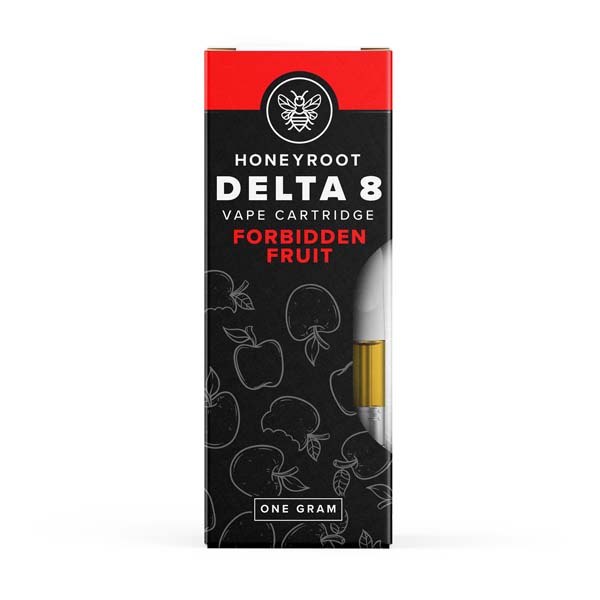
Vaping is a popular method for consuming delta 8 THC. It involves inhaling vapor created by heating delta-8 concentrates or cartridges. The onset of effects from vapes is relatively quick, with users experiencing them within a few minutes. Vape cartridges containing delta 8 THC often come in various flavors, achieved through the use of different terpenes. Some benefits of using vapes include:
- Fast onset
- Adjustable dosing
- Discreet and portable
However, it’s essential to ensure that you are purchasing high-quality, lab-tested cartridges to avoid any potential contaminants or low-quality products.
Edibles and Gummies
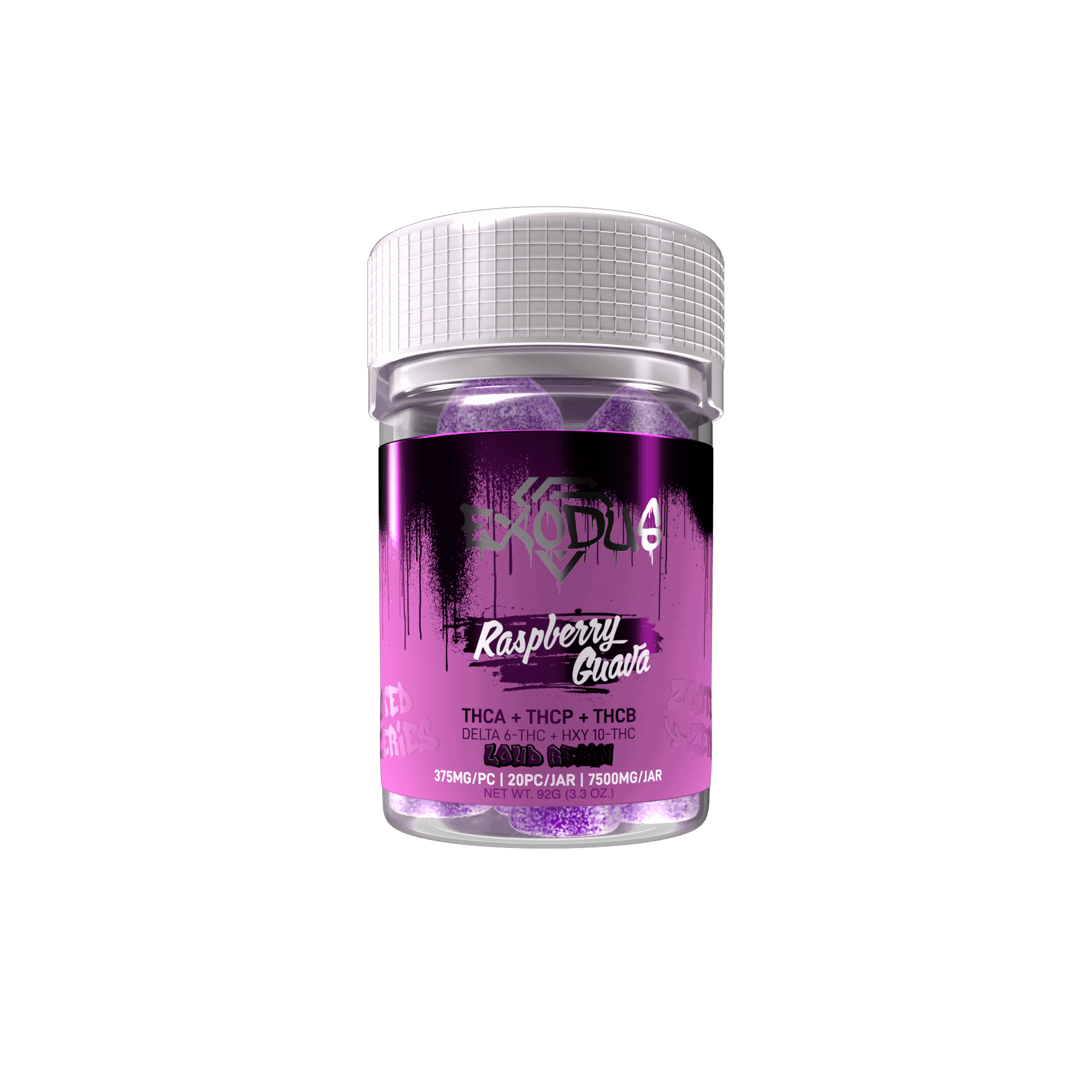
Edibles and gummies provide a tasty, enjoyable way to consume delta 8 THC. These products come in various flavors, shapes, and strengths, making them suitable for different preferences. The onset time for edibles tends to be slower than vaping, with effects taking anywhere from 30 minutes to 2 hours to appear, depending on individual metabolism and the amount of food in the stomach. The benefits of consuming delta 8 THC in the form of edibles and gummies include:
- Longer-lasting effects
- Precise dosing
- Discreet and convenient
However, it’s important to start with a low dose and gradually increase it, as the effects can be more potent due to the way the body processes cannabinoids during ingestion.
Tinctures and Oils
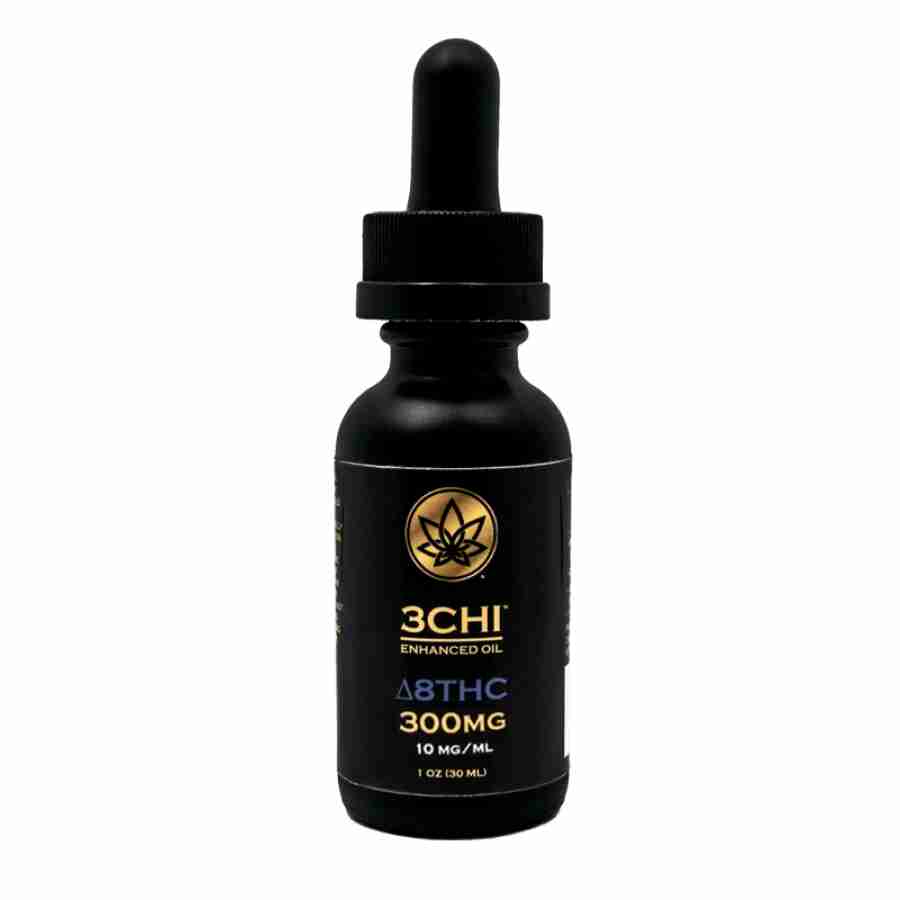
Tinctures and oils offer another way to consume delta 8 THC. These products are administered sublingually (under the tongue) or added to food and beverages. They usually come with a dropper, which allows for accurate dosing. The onset of effects for tinctures and oils may vary, usually occurring within 15 minutes to an hour, and their duration may be longer than vaping. Some advantages of using tinctures and oils include:
- Versatile usage
- Accurate dosing
- Long-lasting effects
When choosing delta 8 THC tinctures and oils, it’s crucial to opt for high-quality, lab-tested products to ensure safety and efficacy.
Safety and Side Effects
Delta-8 THC has gained popularity in recent years, but its safety profile is still being explored. While it is largely considered a safer alternative to delta-9 THC due to its milder psychoactive effects, it is important to be aware of potential risks and side effects associated with its consumption.
Labeling and Packaging
One of the primary concerns regarding delta-8 THC products is the proper labeling and packaging to ensure public health and safety. As with any cannabis-derived product, accurate labeling and appropriate packaging can help prevent unintended consumption, especially among children. National poison control centers have reported incidents of unintentional ingestion of delta-8 THC products by children, highlighting the importance of child-resistant packaging and clear labeling.
A study published in the Journal of Cannabis Research reported two cases of unintended ingestion of delta-8 THC by youths who required critical care. These incidents emphasize the importance of educating consumers on safely storing cannabis products and the necessity of monitoring adverse events related to delta-8 THC consumption.
Side Effects and Public Health Concerns
While delta-8 THC may be considered a safer alternative to delta-9 THC due to its milder psychoactive effects, it is not without potential side effects. Some reported side effects include hallucinations, confusion, and in extreme cases, the loss of consciousness. It is crucial for users to understand the risks associated with delta-8 THC consumption to make informed decisions about its use.
Delta-8 THC research is still ongoing, and there is still much to learn about its long-term safety and potential risks. As the market for delta-8 THC products continues to grow, it is essential for public health agencies, researchers, and medical professionals to monitor its impacts and take appropriate measures to ensure the safety of consumers.
In summary, while delta-8 THC may offer some benefits, it is vital to remain vigilant about its potential risks and side effects. Proper labeling, packaging, and ongoing research are crucial in maintaining a safe and responsible market for this cannabis-derived compound.
Effects on Drug Testing
Delta 8 THC has been around for a while, but its recent popularity has raised questions about its detectability in drug tests. When it comes to drug testing, the primary concern is often the potential for false positives due to the similarities between Delta 8 THC and its more well-known counterpart, Delta 9 THC.
Traditional drug tests, such as urine and blood tests, typically screen for the presence of THC or its metabolite, THC-COOH. These tests are unable to differentiate between Delta 8 and Delta 9 THC, meaning that if you’ve consumed Delta 8 THC, it’s possible to get a false positive for marijuana use.

The detectability of Delta 8 THC in a drug test depends on various factors such as the frequency of use, individual metabolism, and the type of test being administered. For example, a person who uses Delta 8 THC sporadically may have it clear from their system more quickly than someone who uses it daily. Similarly, a person with a faster metabolic rate might metabolize and eliminate Delta 8 THC more rapidly than someone with a slower metabolism.
Different types of drug tests also have varying detection windows for THC. Urine tests, for instance, can detect THC-COOH for up to several weeks after consumption in heavy users, while blood tests have a significantly shorter detection window ranging from a few hours to a couple of days, depending on the user’s frequency of use.
While it’s important to be aware of these factors when considering the use of Delta 8 THC products, it’s crucial to tread carefully if you are subject to drug testing for employment or legal reasons. If you have a drug test coming up and want to avoid the risk of a false positive, it’s recommended to abstain from using Delta 8 THC well in advance of the testing date.
Research and Future Developments
Delta 8 is a psychoactive compound that has been known for quite some time. However, recent interest in its potential therapeutic uses has generated a significant increase in research activity. As a minor cannabinoid, it is present in much lower concentrations compared to the more well-known Delta-9-tetrahydrocannabinol (THC). This has led to challenges in its extraction and use, which has, in turn, driven innovation in the hemp market.
One of the most promising medical benefits of Delta 8 is its potential as an antiemetic, or anti-vomiting agent. Studies conducted by the National Cancer Institute have found evidence suggesting that Delta 8 could be an effective treatment for chemotherapy-induced nausea and vomiting, leading to a significant improvement in the quality of life for cancer patients.
In addition to its antiemetic properties, Delta 8 has also shown promise in the realm of neuroplasticity. Research involving this compound has demonstrated the potential for it to improve acetylcholine levels in the brain, positively impacting learning and memory processes. Moreover, Delta 8 has displayed potential benefits for treating symptoms related to conditions such as Alzheimer’s disease and various types of neuropathy.
Another area of interest for researchers is the interaction between Delta 8 and other cannabinoids, such as cannabinol (CBN). This could open up new avenues for developing novel therapeutic combinations that exploit the unique properties of these natural compounds. As the hemp market continues to evolve, more efficient extraction methods are being developed to isolate and study Delta 8 and its potential applications.
One of the many challenges that the research community faces is the metabolism of Delta 8, which can generate psychoactive metabolites such as THC-O. This poses a significant challenge for ensuring the safety and efficacy of Delta 8-based therapies, as THC-O has been associated with negative side effects, such as potent psychoactive effects and extreme sedation. Consequently, a greater understanding of the metabolism and interactions of Delta 8 is crucial for future therapeutic development.
As research progresses, the future of Delta 8 as a therapeutic agent looks promising, providing new insights into the numerous potential applications of this minor cannabinoid. However, it is essential to continue conducting high-quality, controlled studies to ensure the safety and efficacy of Delta 8-based therapies. Collaborative efforts between researchers, the hemp market, and regulatory bodies are necessary to unlock the full potential of this fascinating compound.
Delta 8 THC Brands and Quality Control
Delta 8 THC, a less potent cannabinoid compared to its more well-known counterpart, Delta 9 THC, has gained popularity in recent years. Although it has been known for decades, the commercial market for Delta 8 has significantly expanded in recent years, with numerous brands now offering Delta 8 THC products.
Despite its growing presence, Delta 8 THC products often lack the same stringent quality control measures as other cannabis-derived products. The main reason for this discrepancy is the unclear regulatory landscape surrounding Delta 8 THC, which leads to inconsistencies in product quality among different brands.
The FDA has not yet issued specific regulations for Delta 8 THC products, which creates challenges for determining their safety and ensuring consistent quality. In the absence of federal guidance, some states apply individual regulations on Delta 8 products, while others remain ambiguous about their legal status.
For consumers, this situation presents risks, as the lack of regulatory oversight can result in Delta 8 products contaminated with harmful chemicals or produced without rigorous quality control measures. For instance, some Delta 8 brands may use cutting agents or impure extraction methods that could leave behind toxic byproducts.
To navigate the uncertain landscape and find reliable Delta 8 THC products, it is crucial for consumers to research various brands and carefully review their quality control practices. Looking for reputable companies with transparent manufacturing processes and third-party lab testing can help ensure a safer and more consistent Delta 8 THC experience.
In conclusion, the growing interest in Delta 8 THC has given rise to numerous brands offering these products. However, the lack of strict quality control measures due to an unclear regulatory landscape increases the risks for consumers. It is essential to be mindful of the potential risks and choose brands with an emphasis on transparency and product quality.
Frequently Asked Questions
When did Delta 8 gain popularity?
Delta 8 THC has been around for a while, but it recently gained traction in the cannabis community. Its rise in popularity can be attributed to its distinctive effects, often described as a “happy medium” between CBD and Delta 9 THC.
What is the difference between Delta 8 and Delta 9?
Delta 8 and Delta 9 THC are both cannabinoids found in the cannabis plant, but they have different chemical structures and effects. Delta 9 THC is known for its strong psychoactive effects, while Delta 8 is considered to be about two-thirds as potent as its cousin, providing a milder experience. Users of Delta 8 THC report more focus and clarity compared to the effects of Delta 9 THC.
Is Delta 8 a synthetic cannabinoid?
Delta 8 THC is not a synthetic cannabinoid. It is a naturally occurring minor cannabinoid found in the cannabis plant. However, in many products, Delta 8 THC is converted from CBD or other cannabinoids through a chemical process called isomerization.
How is Delta 8 produced?
Delta 8 THC is produced using various methods, but the most common method involves converting CBD into Delta 8 THC through a process called isomerization. This involves the addition of an acidic catalyst, heat, and other chemicals to convert CBD into Delta 8 THC. This method is used because naturally occurring Delta 8 THC is present in small quantities in the cannabis plant.
What are the legal aspects of Delta 8?
Delta 8 THC is a complicated subject when it comes to legality. While it is technically derived from hemp containing less than 0.3% Delta 9 THC, making it legal under the 2018 Farm Bill, the DEA has issued a controversial interpretation stating that all synthetically derived tetrahydrocannabinols, including Delta 8 THC produced through isomerization, are Schedule I controlled substances. States have also implemented their own laws and regulations regarding Delta 8 THC usage, so it’s important to check local laws.
Are there any health concerns about Delta 8?
As a relatively new product on the market, research on Delta 8 THC is still limited. However, there are concerns about the safety of using Delta 8 THC. It’s essential to be cautious, especially with products manufactured by companies who may not follow proper safety standards. Potential users should consult with a healthcare professional before using Delta 8 THC to ensure they are making informed decisions about their health.
Resources:

